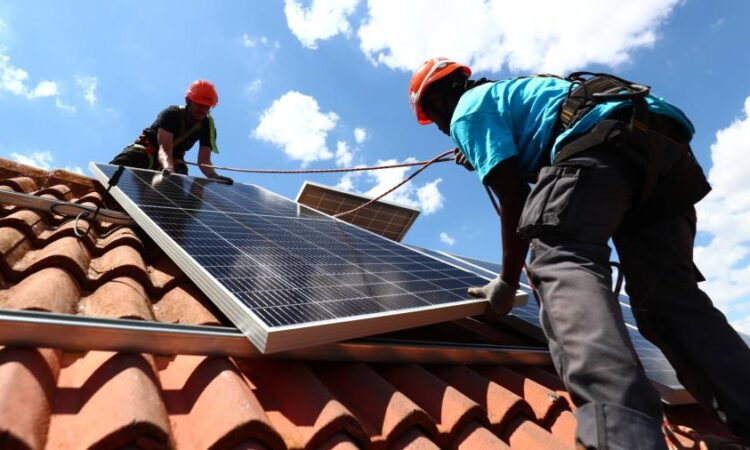
Investment in green technology in the EU is being held back by a lack of skilled workers, a European Investment Bank poll of more than 12,500 businesses and around 680 authorities has found.
The warning comes as the EU prepares to increase support for clean technology amid mounting competition from the US for green investment.
More than four-fifths of companies and 60 per cent of local authorities polled by the EIB said that a skills shortage, particularly in the engineering and digital sectors, was preventing projects that target climate change from going ahead, according to the multilateral bank’s annual investment report, published later on Tuesday.
“Investments to limit climate change are increasing but are still well below what is needed to meet Europe’s target of net zero emissions by 2050,” added the report, which is based on surveys conducted in 2022.
The European Commission is set to present plans to boost the competitiveness of Europe’s clean technology industries on March 14, after Germany and France warned the region was at risk of falling further behind rivals in the race to secure investment.
The EIB, the world’s largest multilateral bank by assets, found that investment into “productive” industries in Europe had lagged the US by the equivalent of 2 per cent of gross domestic product a year for the past decade.
The Biden administration’s Inflation Reduction Act, a $369bn package that includes extensive tax credits and subsidies designed to boost green industries, has sparked concerns that the gulf with the US could widen further.
France and Germany have both called for Brussels to relax state aid rules — a move that would enable member states to pump funds directly into industries — in response to the IRA.
But Werner Hoyer, the EIB’s president, said the EU did not need “large scale subsidies” to compete. Instead, it should reform “cumbersome administrative procedures”, he said in a speech in Luxembourg on Monday. “I speak from experience: our bankers have a huge pipeline of green industrial projects, but our clients are waiting for permits, stuck in bureaucracy.”
Odile Renaud-Basso, president of the European Bank for Reconstruction and Development, told the Financial Times that a lack of projects to finance was “the first missing block” in funding the climate transition.
“What we see in reality on the ground is that first you need to have projects,” Renaud-Basso said. “You may have trillions, but to invest them you need to have a project.”
Both the EU and the US want to pivot away from reliance on China, which dominates global supply chains for the critical materials needed for electric vehicles, solar and wind power.
However, Dries Acke, policy director at SolarPower Europe, a trade body, said that even with the “crazy export hiccup” for solar panels sparked by Beijing’s stringent Covid lockdowns, the EU still had more photovoltaic cells than it could install owing to the lack of trained electricians.
SolarPower Europe has estimated that the number of workers in the solar sector will need to increase from 500,000 in 2021 to more than 1mn by 2030 for the commission to meet its target for 45 per cent of the bloc’s energy to come from renewable sources by 2030 — a figure that has yet to be agreed by the EU’s member states.
The commission’s March proposals will also include “net zero industry academies” to help retrain workers and ways to smooth access of workers from outside the EU that have experience in “priority sectors”.





